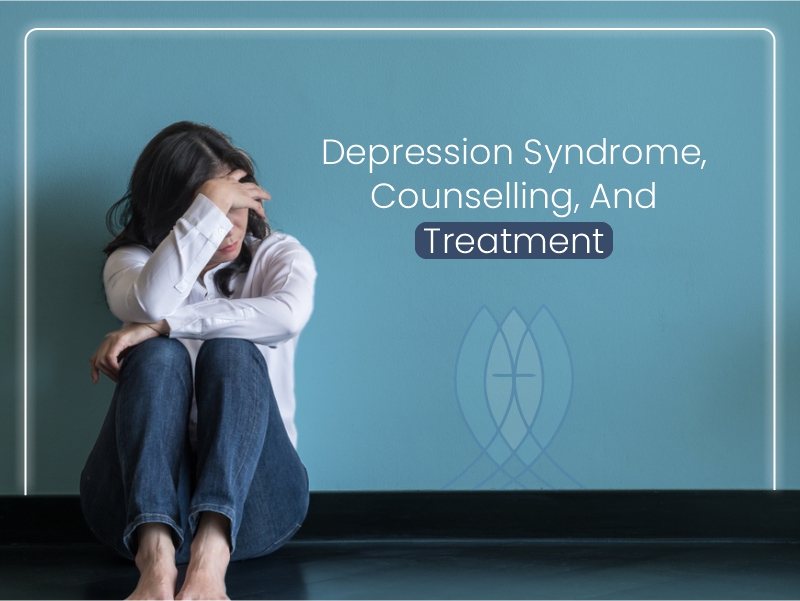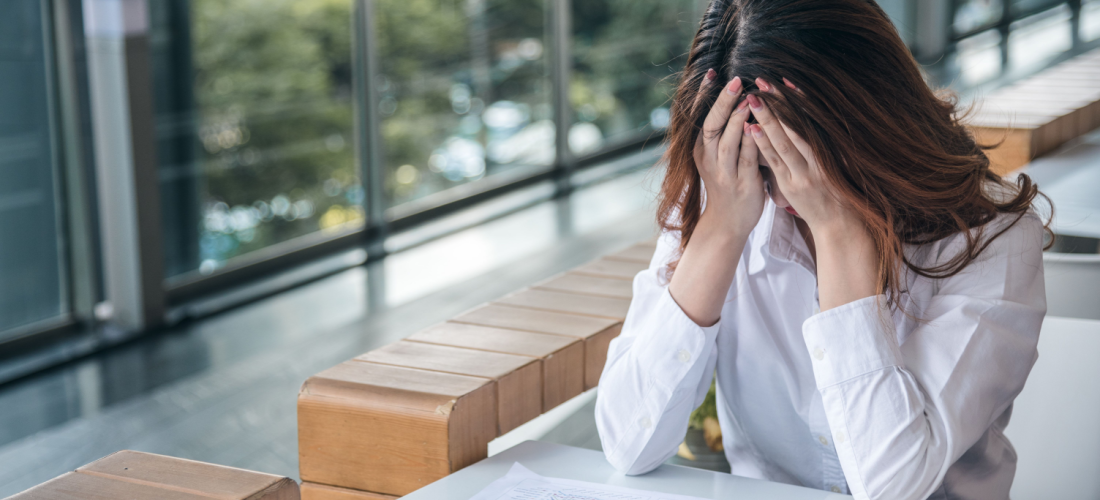Checking Out Different Techniques in Coaching for Anxiousness Problem for Lasting Change
When tackling anxiety conditions, it's necessary to explore a range of therapy approaches. Each method offers unique insights and tools to aid you handle your signs and symptoms properly. You could find that integrating techniques can yield the best outcomes. Nevertheless, understanding the nuances of these approaches is vital to cultivating lasting modification. What happens if the appropriate combination could launch a new degree of emotional health for you?
Comprehending Anxiety Problems: A Brief Introduction
Stress and anxiety disorders, which affect countless individuals worldwide, can significantly affect life. You may experience overwhelming feelings of concern or stress that seem unmanageable. These feelings can bring about physical signs like an auto racing heart, sweating, or also wooziness. Usual kinds of anxiety disorders include generalized anxiousness problem, panic condition, and social anxiousness disorder. Each has one-of-a-kind indications, but they all share a propensity to disrupt your regular and relationships.Understanding the root creates of your stress and anxiety is important. It could come from genetics, brain chemistry, or life experiences. Identifying your triggers can assist you handle your feedbacks much better. It's essential to bear in mind that you're not the only one in this struggle. Lots of people encounter similar challenges, and looking for help is a solid action toward sensation better. By discovering anxiety conditions, you're already on the course to understanding and managing your condition a lot more successfully.
Cognitive-Behavioral Therapy: Challenging Adverse Idea Patterns
In Cognitive-Behavioral Treatment, you'll start by identifying the adverse idea activates that contribute to your anxiousness. When you identify these ideas, you'll deal with changing them with even more positive alternatives. With each other, you'll construct efficient coping methods to aid handle your anxiousness in everyday situations.
Determining Negative Idea Triggers

When you experience minutes of distress, recognizing the certain triggers behind your unfavorable ideas can be necessary in handling anxiousness. Begin by focusing on scenarios that provoke feelings of concern or concern. Is it a crowded area, an approaching deadline, or a conversation with certain people? Write down these circumstances in a journal. This will certainly aid you recognize patterns in your thinking. Notice physical sensations that accompany your adverse thoughts, like an auto racing heart or rigidity in your chest. By identifying these triggers, you get understanding into what's sustaining your anxiousness. Recognizing these connections is the primary step in testing those ideas and ultimately restoring control over your psychological feedbacks.
Replacing Ideas With Positives
Challenging negative idea patterns is a vital step in changing your way of thinking and decreasing anxiousness. You may typically locate on your own trapped in cycles of insecurity or catastrophic reasoning. Rather than allowing these thoughts dictate your feelings, technique replacing them with favorable affirmations or realistic options. When you believe, "I can't handle this," shift it to, "I can handle obstacles one action at a time." This basic modification can significantly impact your emotion. On a regular basis determining and responding to these unfavorable thoughts helps create a healthier inner discussion. Keep in mind, it takes time and initiative, however consistently exercising this technique can lead to long lasting change, empowering you to deal with anxiety with restored self-confidence and resilience.
Structure Coping Approaches With Each Other
Changing adverse thoughts is only the beginning of taking care of anxiousness efficiently. To create long-term adjustment, you require to develop coping methods that empower you. Cognitive-Behavioral Therapy (CBT) aids you identify and test those unhelpful thought patterns. With each other, you and your counselor can discover just how these thoughts influence your feelings and behaviors.Start by establishing practical techniques, like journaling or mindfulness workouts, that enable you to face anxiety head-on. When you face your concerns progressively, you'll learn to respond in different ways.

Mindfulness and Acceptance-Based Approaches: Cultivating Present-Moment Understanding
As you browse the intricacies of stress and anxiety, including mindfulness and acceptance-based strategies can significantly enhance your capacity to grow present-moment awareness. By focusing on the present moment, you'll locate that you can observe your ideas and feelings without judgment (Counseling services for anxiety). This technique aids you acknowledge your anxiousness without feeling overwhelmed by it.Engaging in mindfulness exercises, such as deep breathing, body scans, or led meditations, allows you to ground yourself in your present experience. Acceptance-based strategies encourage you to accept your feelings instead than deal with against them. They shed their power over you.Incorporating these techniques into your daily routine can transform exactly how you respond to anxiousness when you approve your sensations. You'll develop resilience and find out to browse stressful scenarios with higher simplicity. Ultimately, growing present-moment understanding lays the structure for enduring change, empowering you to lead a much more satisfying life
Direct Exposure Therapy: Facing Concerns Slowly
Exposure therapy helps you confront your fears in a gradual way, making it less overwhelming. You'll learn techniques to face anxiety-provoking situations detailed, while additionally developing coping methods to manage your reactions. This approach encourages you to take visite site control and lower anxiousness gradually.
Progressive Exposure Techniques

When dealing with stress and anxiety, gradually challenging your anxieties can be a powerful way to reclaim control. This strategy, referred to as steady direct exposure, involves gradually revealing yourself to the circumstances or objects that trigger your anxiety. Beginning with less intimidating circumstances and slowly function your means as much as more challenging ones. If you're afraid of public speaking, you could start by speaking in front of a mirror, then advance to sharing ideas with a good friend, and ultimately address a small group. Each step assists desensitize you to the fear, developing your self-confidence with time. Remember, it's necessary to pace yourself and commemorate little triumphes as you relocate through this process, strengthening your capability to take care of anxiousness effectively.
Building Coping Methods
Structure reliable coping strategies is important for handling anxiety, particularly as you face your worries slowly - Counseling services for anxiety. One powerful technique is exposure therapy, where you start by facing your worries in a controlled way. Begin with less daunting circumstances and slowly work your way up to more tough circumstances. This steady exposure assists desensitize you to stress and anxiety causes, making them less overwhelming.Incorporate relaxation methods, such as deep breathing or mindfulness, to soothe your mind during exposure. Track your progress, commemorating tiny triumphes in the process to boost your self-confidence. Remember, it's all right to take your time; the objective isn't excellence yet constant enhancement. By developing these methods, you'll equip yourself to navigate anxiety and accept life much more completely
Psychodynamic Treatment: Uncovering Source of Anxiety
Psychodynamic therapy discovers the unconscious mind, revealing the source of your anxiety. By analyzing your thoughts, feelings, and previous experiences, this method helps you reveal underlying disputes and unresolved concerns that might add to your existing stress and anxiety. You'll deal with a specialist to check out youth experiences, relationships, and emotional patterns that form your reactions today.As you gain understanding right into these much deeper layers of your mind, you'll begin to recognize exactly how previous occasions affect your existing behavior. This understanding can lead to catharsis, permitting you to refine emotions you may have suppressed.Through the restorative partnership, you can additionally identify protection mechanisms that might have developed gradually, therapy for anxiety offering a clearer course to change. Eventually, psychodynamic treatment equips you with the devices to resolve your anxiety at its core, advertising lasting improvement in your psychological well-being.
Integrative and All Natural Techniques: Combining Techniques for Greater Efficiency
Incorporating different healing strategies can enhance your journey towards taking care of anxiety better. By incorporating elements from cognitive-behavioral therapy, mindfulness methods, and alternative techniques, you can create a tailored strategy that resolves your special demands. You may make use of cognitive-behavioral strategies to test adverse idea patterns while including mindfulness workouts to ground on your own in the existing moment.Additionally, discovering all natural practices such as yoga or meditation can promote leisure and decrease anxiety symptoms. This mix permits you to create better self-awareness and resilience.Experimenting with these varied techniques can assist you find what resonates most with you. Keep in mind, it has to do with discovering a synergy that works, instead than adhering to a solitary strategy. This integrative approach not just offers instant alleviation yet additionally promotes long-term abilities for handling anxiousness, equipping you to recover control over your life.
The Role of Assistance Solutions: Structure Durability With Link
While it could seem that managing stress and anxiety is a solitary trip, having a strong support system can play a necessary duty in your durability. Bordering yourself with empathetic friends, household, or support system develops a safe space where you can honestly share your experiences and sensations. When you connect with others, you advise yourself that you're not the only one in this struggle.These partnerships use support and can provide useful coping methods that have actually functioned for others. It's also an opportunity to obtain viewpoint; good friends can assist you see scenarios differently, reducing sensations of isolation.Moreover, emotional support fosters a sense of belonging, which can significantly ease anxiousness signs. By leaning on your support group, you can build strength and take on obstacles better. Bear in mind, connecting for aid suggests stamina, and it can make all the difference in your trip toward handling anxiousness.
Regularly Asked Concerns
What Are the Typical Symptoms of Anxiety Disorders?
You might experience restlessness, fatigue, problem concentrating, irritability, muscle stress, and rest disruptions. Physical symptoms can consist of rapid heart beat, sweating, and trembling. Identifying these indications early can help you look for appropriate support and treatment.
Exactly How Lengthy Does Therapy Normally Last for Anxiousness Conditions?
Treatment for anxiousness disorders generally lasts anywhere from a few weeks to several months. It actually depends on your specific requirements, development, and the strategies your specialist uses to aid you handle your stress and anxiety efficiently.
Can Drug Be Utilized Along With Treatment for Anxiety?
Yes, drug can definitely be utilized along with treatment for anxiousness. Incorporating both methods often enhances treatment performance, aiding you manage signs and symptoms while exploring underlying concerns via therapy (Counseling services for anxiety). Always consult your healthcare service provider for personalized advice
Exist Self-Help Techniques for Taking Care Of Anxiousness?
Yes, there are several self-help approaches for managing anxiety. You can practice mindfulness, involve in normal exercise, preserve a balanced diet regimen, develop a routine, and utilize deep breathing methods to help in reducing anxiousness symptoms properly.
How Do I Know if I Need Professional Help for Anxiety?
